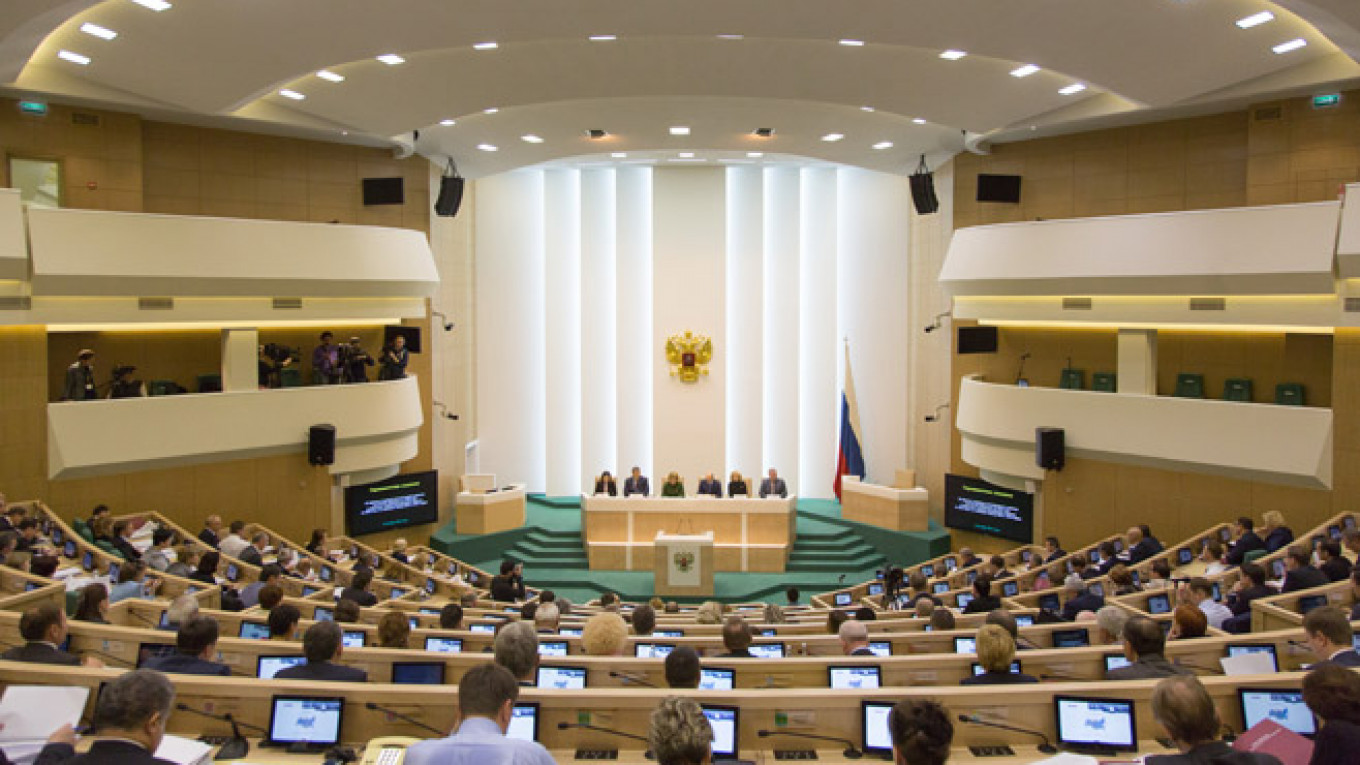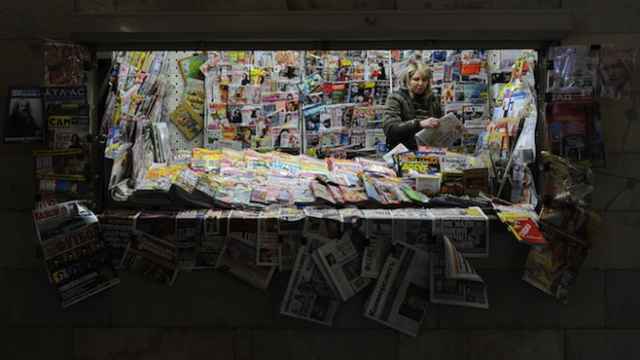Days after President Vladimir Putin signed a law forcing foreign companies to sell stakes in Russian media, members of Russia's upper house of parliament have advocated applying state pressure to combat a glut of “negative” news that is poisoning the country's image, a news report said Friday.
The proposal's mastermind, Igor Chernyshev, told newspaper Izvestia that he aims to create a “forum for discussing the question of our country's information policy” with the editors of national media outlets in the parliament's Federation Council.
“It's very important for formulating an image even within our government — among people, among regions, let alone internationally,” Chernyshev said.
“It is a wonky situation when national media show only what they themselves consider important or hot topics,” he said.
Chernyshev's proposal comes hard on the heels of a law limiting foreign ownership of Russian media to 20 percent that critics say was designed to increase the state's leverage over media outlets. Previous legislation had set a 50 percent limit on ownership of radio and television media but did not touch print, where foreign companies have a huge presence. The new law threatens the Russian assets of at least 15 international media houses.
Some media professionals were less than enthused by Chernyshev's proposal. Vladimir Pozner, a respected media personality and talk show host on state-run Channel One, said Friday that the idea strongly resembled the attitude toward media under the Soviet Union.
“There is no negative or positive information — there is information. … This looks a lot like an effort to introduce censorship,” Pozner told news website Slon.ru.
Chernyshev, a representative from the Tomsk region in Siberia, said the negativity rife in media means that national television channels would rather cover car crashes in his native region than the opening of new factories.
Soviet news channels routinely conveyed minimal negative information about the state while depicting the West as stuck in perpetual crisis and near collapse — a practice that some Russian channels, such as state-owned international broadcaster Russia Today, have been accused of perpetuating.
Among lawmakers, the proposal is already finding some support. Federation Council speaker Valentina Matviyenko, Russia's most powerful female politician, has ordered the council's commission on media legislation to consider the proposal, Izvestia reported.
The commission's head, Vitaly Ignatenko — a former chief of state news agency TASS — told Izvestia: “We will invite journalists and editors to the Federation Council to see where they need to adjust their actions a bit.” He added: “It will be a purely professional conversation.”
A Message from The Moscow Times:
Dear readers,
We are facing unprecedented challenges. Russia's Prosecutor General's Office has designated The Moscow Times as an "undesirable" organization, criminalizing our work and putting our staff at risk of prosecution. This follows our earlier unjust labeling as a "foreign agent."
These actions are direct attempts to silence independent journalism in Russia. The authorities claim our work "discredits the decisions of the Russian leadership." We see things differently: we strive to provide accurate, unbiased reporting on Russia.
We, the journalists of The Moscow Times, refuse to be silenced. But to continue our work, we need your help.
Your support, no matter how small, makes a world of difference. If you can, please support us monthly starting from just $2. It's quick to set up, and every contribution makes a significant impact.
By supporting The Moscow Times, you're defending open, independent journalism in the face of repression. Thank you for standing with us.
Remind me later.






